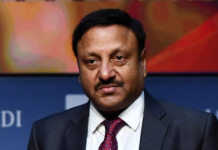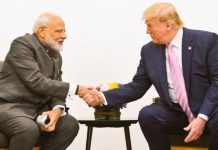To answer this, Mitra set himself an “impossible task”. He would take this “hole in the wall”, as his experiment had come to be known, to a group of 12-year-old Tamil speaking children. Would they, having been left alone with some software on basic biology (a subject they had not studied) in English(a language they did not know) pass a standard test?
They did.
And with a little help from an adult, who played the part of a doting granny who may not understand a subject but nevertheless encourages and praises her grandchild’s efforts, they did even better. In fact, they did as well as children in rich, urban schools.
Mitra took these experiments to other parts of the world — Italy, Cambodia, Latin America. Everywhere, he got the same results.
It confirmed a suspicion that had been growing on him — that our current methods of education were indoctrinating and outmoded, a remnant of an “age of empires” during which they served to produce uniformity.
That age had passed. What we needed now was a new paradigm of ‘minimally invasive education’, where children would be left to “rub shoulders” with each other and an Internet-connected computer. With this, they would ‘teach’ themselves.
The first experimental steps towards this have already been taken in Andhra Pradesh and Tamil Nadu, where these ‘self-organised learning environments’ have been set up. The goal in this case is for the children to teach themselves English. The grannies here are a group of 200 moderators, most of them actual British grannies, who over Skype, work with the children.
This, spread across subjects, is Mitra’s vision of what he refers to as the ‘school in the cloud’. He plans to use the TED prize money to set up such a facility in India within the next two years.
Mitra is, however, emphatic that this is a work in progress. Many more experiments need to be done, and in its initial form, the ‘school in the cloud’ will augment the current educational system rather than replace it.
One of the biggest problems with his system, he confesses, is measuring the results in the children. The only yardsticks he has are exams that originate in the same system of ‘rote’ learning that he is so critical of.
Nor is it clear how these individual experiments will scale up to a whole unsystemic ‘system’.
But that they will, he seems sure.
At every TED talk he’s given, Mitra has, with childlike enthusiasm, quoted a line from a conversation he had with Arthur C Clarke, where the science fiction writer told him, “If a teacher can be replaced with a machine, he should be.” Students, it seems, are their own best teachers.
akshai@tehelka.com












